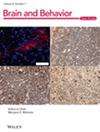Combined Effect of HF-rTMS and Whole-Body Vibration Exercise on Cognitive Efficiency in Esports Players With or Without Sedentary Behaviors: A Randomized Controlled Trial
Abstract
Background
The present study investigated the effects of high-frequency repetitive transcranial magnetic stimulation (HF-rTMS), whole-body vibration training (WBVT), and a combination of HF-rTMS and WBVT interventions on cognitive performance in esports players with or without sedentary behaviors.
Methods
A total of 128 participants, including sedentary and non-sedentary esports players, were randomly assigned to the HF-rTMS group, the WBVT group, the HF-rTMS + WBVT group, or the control group. The interventions were administered daily for 2 weeks, and pretest, mid-test, and posttest assessments were conducted. Cognitive function was assessed using the Digit Symbol Substitution Test (DSST) for response time and accuracy, and gaming performance was measured using first-person shooter (FPS) scores.
Results
At baseline, sedentary players demonstrated significantly increased response time in DSST compared to non-sedentary participants. The interventions, both HF-rTMS and WBVT, significantly enhanced cognitive processing speed and accuracy, with these improvements being more pronounced in sedentary esports players compared to non-sedentary esports players. Notably, the combination of HF-rTMS and WBVT was found to be the most effective in boosting cognitive performance among these interventions. Furthermore, FPS scores showed an overall increase in all intervention groups in both sedentary and non-sedentary esports players, and the combination of HF-rTMS and WBVT showed the most pronounced effect on in gaming performance.
Conclusion
The study demonstrated that sedentary behavior had a detrimental effect on the cognitive function in esports players. Furthermore, HF-rTMS and WBVT, especially in combination, effectively enhanced cognitive performance in esports players, with a more pronounced effect in those with sedentary lifestyles. These findings suggested potential strategies for cognitive enhancement in the esports context, highlighting the need for tailored interventions based on individual lifestyle factors.


 求助内容:
求助内容: 应助结果提醒方式:
应助结果提醒方式:


